If you are planning for a baby, or just welcomed a new addition to the family, the innovation sector is working hard to help make pregnancy and new infant care safer and a bit easier.
Israeli companies are behind some of the pioneering maternal health tech solutions that can prevent preterm births, increase the success rate of IVF, offer breastmilk diagnostics and enable pregnant women to perform at-home ultrasound scans.
“There is a huge market in technology regarding pregnancy and follow up,” says Dr. David Shashar, CEO of PregnanTech, a company developing a smart device for preventing premature birth. “Large companies have not been oriented to this discipline but it is my belief that this is going to change significantly, both regarding pregnancy and women’s health altogether.
“Obstetrics and gynecology are going to include a huge number of technologies in the next decade or couple of decades,” he tells NoCamels.
NoCamels surveyed the Israeli maternal health tech and new baby tech scene to see what is in the pipeline and what devices are already on the market.
PregnanTech
PregnanTech is developing an innovative product to reduce the load and pressure on the cervix, avoid cervical dilatation and shortening despite contractions and delay the biomechanical cascade leading to preterm birth.
Called Lioness, this silicone ring is placed high on the cervix during a simple, nonsurgical procedure aided by application tools and keeps the cervix elongated and closed, even in the presence of contractions. The device is removed at term.
Every year, about 15 million preterm infants are born worldwide, or “one in 10 pregnancies is a preterm birth,” says Dr. Shashar.
About one million of these newborns do not survive, he says, and some who do survive suffer from disabilities that have a significant effect on their quality of life and on their families.
“The rate of preterm birth has not changed for decades and we believe that we have a device which is going to make a huge change. It is a game-changer in obstetrics. It will reduce the numbers and the rates of preterm birth worldwide,” Shashar tells NoCamels.
“There are no successful solutions today and the health systems are desperate for it. Leading doctors in Israel and around the world see our product as a breakthrough,” says Shashar, noting that between 9 percent and 17 percent of all pregnancies are at risk of premature birth.
Nuvo
Nuvo has a fetal and maternal monitoring solution that pregnant women wear like a belt. The FDA-cleared device, called INVU, measures fetal movements, fetal heart rate, and maternal heart rate using central and acoustic sensors.
This month, the Tel Aviv maternal-fetal health company filed a 510(k) notice with the FDA to add a new uterine activity module that provides for remote monitoring of maternal uterine activity.
“I’m proud of the accomplishments Nuvo achieved in 2020, including the FDA clearance of the INVU platform for remote monitoring of fetal and maternal heart rates,” said Oren Oz, founder and CEO of Nuvo Group.
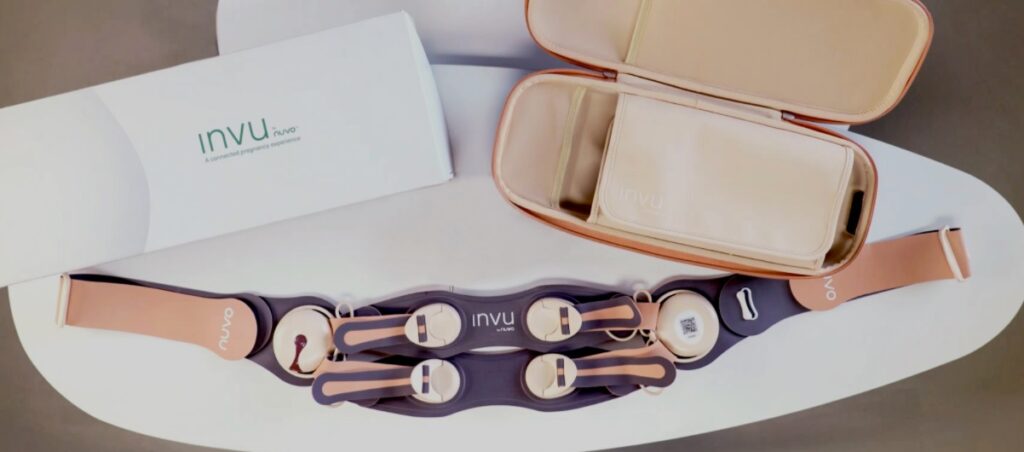
“We are excited to expand our offering to include remote monitoring of maternal uterine activity, which will provide expectant mothers and their healthcare providers with more comprehensive data on maternal and fetal health. This supplemental FDA clearance will mark a key milestone in Nuvo’s journey to reinvent and advance pregnancy care for the 21st century,” he added.
Earlier in January, Nuvo announced a commercial agreement with its first US partner, the Axia Women’s Health, a network of more than 400 providers and 150 women’s health centers across New Jersey, Pennsylvania, Indiana, Ohio, and Kentucky. Providers will be able to prescribe INVU to expectant mothers for remote fetal heart rate monitoring.
In August, Nuvo was named among five Israeli firms on the Digital Health 150, a list published by New York-based research firm CB Insights featuring the 150 most promising private digital health companies in the world.
Embryonics
Israel-based startup Embryonics is using artificial intelligence to increase the success rate of fertility treatments.
“We are not trying to mimic the human expert, we are introducing a new level of accuracy,” said Dr. Yael Zamir, Embryonics CEO, in a statement.
Embryonics recently reported six successful IVF pregnancies using the AI technology to select which embryo to implant in a patient. Usually, it is the job of an embryologist, a fertility specialist, to decide which embryo to use in IVF treatment.
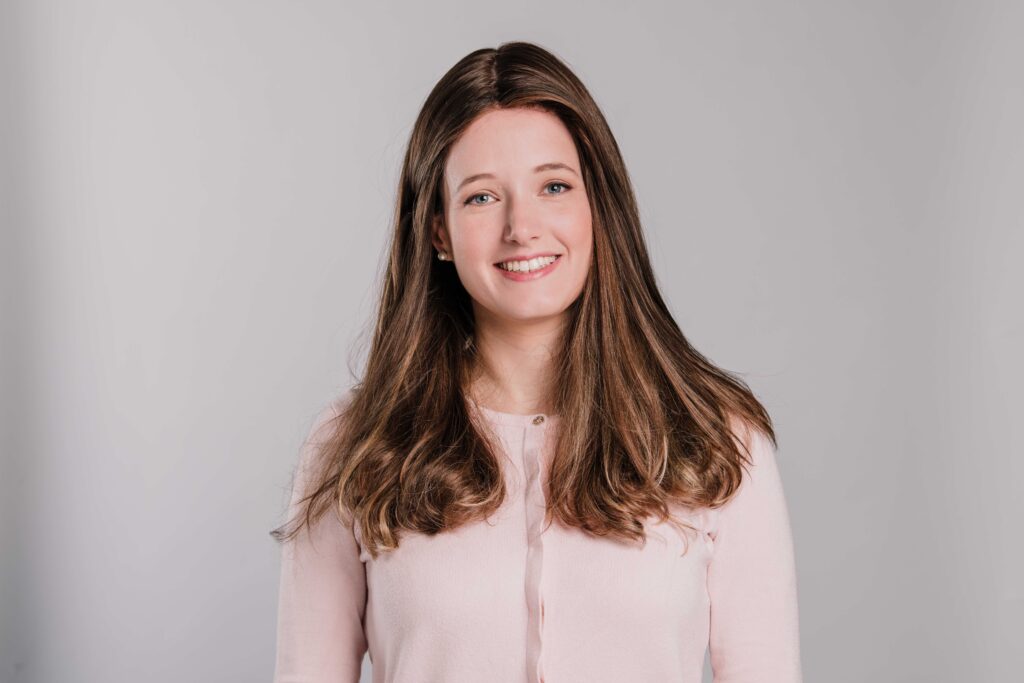
The startup says its technology, called Ubar (fetus in Hebrew), outperformed a panel of embryologists in predicting which embryos will result in pregnancy by about 20 percent, according to the company. The Israeli AI startup also outperformed human experts by nearly 30 percent in recommending which embryos not to use.
Embryonics has an ongoing clinical study at the Nadiya Clinic of Reproductive Medicine in Kyiv. The six reported pregnancies are part of this study and five other participants now awaiting test results.
The tech may also serve to mitigate costs. The average full cost of an IVF baby in the United States is $66,000, says Embryonics.
The technology was developed based on a data set from tens of thousands of IVF cycles, including time-lapse videos of embryos. The tech was presented in a peer-reviewed study at the Medical Imaging with Deep Learning conference in Montreal in July last year.
Embryonics says it is the first company to use geometric deep learning in a clinical setting. In addition to embryo selection, the company is using this machine learning tech to create personalized hormonal treatments for IVF patients and a solution to recommend which eggs to preserve.
“All this together, based on our calculations, will improve the overall success rate of an IVF process by an average of 10 percent, which is a lot of – what we call – AI babies, a lot of money and long periods of time,” Zamir said.
Embryonics is planning to run a clinical trial at several sites in the United States and expects to get approval from the FDA by the end of 2021.
PulseNmore
PulseNmore has developed a handheld tele-ultrasound device that allows expecting parents to perform at-home scans. Especially during COVID-19 times, this device limits the need for hospital visits and reduces unnecessary emergency room visits.
The PulseNmore device docks with the user’s smartphone, displays the images on the screen and sends them to a doctor or sonographer for analysis.
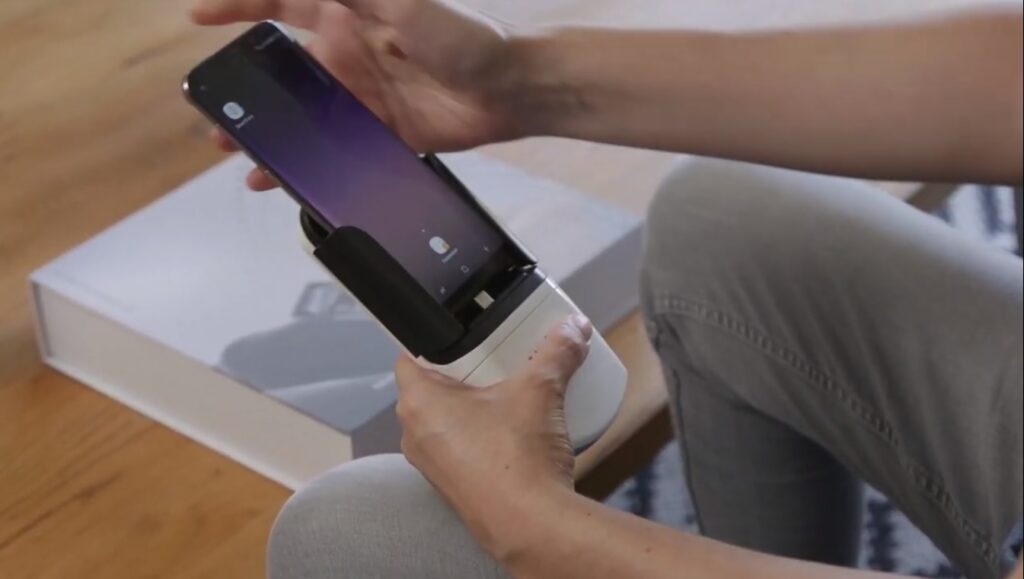
“The coronavirus pandemic has brought to light the need for telemedicine devices and telemedicine options, which are now replacing face-to-face doctor visits more broadly,” Jordan Rubinson, Chief Commercial Officer of PulseNmore, told NoCamels last year shortly after the pandemic began.
Founded in 2015, PulseNmore has an agreement with Clalit Health Services, which has 4.6 million insured members, to provide tens of thousands of its pregnant members with the company’s product.
“At home tele-ultrasound scanning is a major leap forward in digital medicine and prenatal health,” said Dr. Elazar Sonnenschein, founder and CEO of PulseNmore. “We have successfully miniaturized the traditional ultrasound system to create a solution that is both affordable and accessible for expectant families.
“According to Clalit, pregnant women pay ‘false’ visits to the emergency room more than twice on average with concerns about their baby’s well-being. Our solution provides vital information to healthcare providers to determine if a baby is healthy, helping expectant mothers have peace of mind at home and avoid unnecessary visits to the ER,” he added.
HeraMED
HeraMEd is a Netanya-based company founded in 2011 that developed a number of solutions for pregnany care at home. The hardware solutions are supported by software applications focused on fetal well-being and parental assurance.
Sign up for our free weekly newsletter
SubscribeHeraMED’s smartphone-based baby heartbeat monitor for home use, HeraBEAT, is being used in a clinical study with the Mayo Clinic to evaluate the impact of the Israeli medtech’s device on the perception of fetal wellbeing felt by expectant mothers.
HeraBEAT completed an earlier trial in Western Australia at the Joondalup Health Campus.
“The approval to commence a clinical study with a world-leading healthcare provider, such as Mayo Clinic, is a significant milestone for HeraMED. Mayo Clinic represents a highly relevant collaborator for HeraMED because they are well renowned as leading researchers in advancing prenatal care models,” said HeraMED CEO and co-founder David Groberman. “This trial is expected to be a precursor to the broader HeraCARE pilot.”
The company is now working on two products, EchoBEAT, a device that includes a Fetal Movement Detection (FMD), and ORION, an AI-powered pregnancy monitoring system developed in cooperation with the Mayo Clinic to detect precursors that can indicate possible pregnancy complications before they become a problem.
MyMilk Labs
Breastfeeding can be a wonderful, bond-building, intimate experience. It can also be painful, stressful, and nerve-wracking, especially in the first few weeks and months post-birth. Often, it can be all of those things combined.
Nursing mothers may be plagued with questions such as “Am I producing enough milk? How can I tell if the baby is eating enough?”
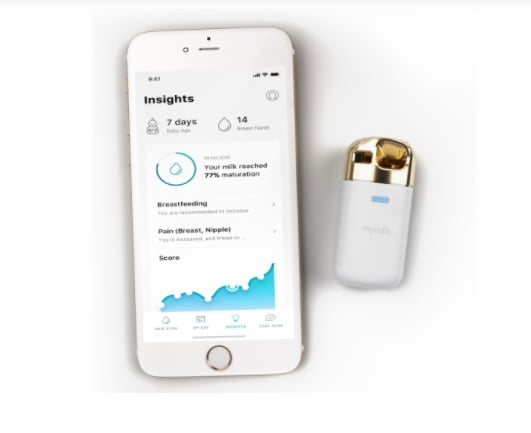
MyMilk Labs, an Israeli startup based in Herzliya, sought to help answer some of these questions and assuage parents by developing a milk sensing device that can track breastfeeding and prevent low milk supply.
The device, called MyLee, works by analyzing a small sample of breast milk, about six drops, for electrochemichal properties. MyMilk then processes the sample to generate personalized insights about breastfeeding establishment and milk supply progress, starting from the first days post-birth. The information also includes the identification of early signs of breast inflammation, which can occur when breastfeeding. These data-powered features offer much-needed support for mothers post-partum and help inform short and long term breastfeeding success.
Parents can download the MyLee App on the AppStore and can order the device (limited beta) through MyMilk’s website.
MyMilk Labs was founded in 2014 by Dr. Ravid Schecter and Dr. Sharon Haramati, both mothers, scientists and researchers who met while working on their respective PhDs at the Weizmann Institute of Science.

MyMilk, together with its clinical laboratory partner AML, also offers lab-based testing for comprehensive nutritional composition for breastmilk nutrients including fat, protein, calories, and a set of vitamins, and a test for breastfeeding pain diagnostics including bacterial and fungal infection, and antibiotic sensitivity.
The company is now working on adding capabilities to the app and device extending beyond breastfeeding establishment to the full breastfeeding journey.
MilkStrip
MilkStrip is an Israeli biotech and wellness startup founded in 2017 that developed at-home diagnostic kits for breast milk. MilkStrip says it can detect vitamin C levels in breastmilk and confirm whether or not stored milk has expired. The kits and corresponding app can provide results about the nutritional profile and degree of breast milk freshness in about three minutes, the company says.
“Parents want to be empowered to know more about the nutrients in the breast milk they feed their babies,” said Dr. Avital Beck, CEO and co-founder of MilkStrip, mother of six, and a biotech scientist.
“While the overall benefit of feeding babies breast milk has been well established for years and will always be the optimal choice compared with any formulas on the market, MilkStrip is the first innovator in the baby-tech industry to deliver breast milk test results in real-time and at-home exactly when parents need answers,” said Beck.
The company says that more than 60 percent of women throw out stored breast milk, which is usually still fresh for consumption, because they are unsure if it is still good.
“Modern mothers are empowered with lots of general knowledge at their fingertips, but when it comes to science and baby health there are still many unanswered questions. The aim of our diagnostic kits is to bring decision support to mothers in a time of great uncertainty,” said Dr. Hadas-Shatz-Azouly, COO, VP R&D and co-founder of MilkStrip and mother of five.
“We help them ensure their children are getting optimal sustenance and nutrition even during a pandemic.”
MilkStrip says it plans to roll out additional diagnostic kits in 2021.
Bio Milk
Bio Milk, an Israeli company with patents for the production of cultured milk from animals within laboratory conditions, is now setting its sights on producing cultured breast milk.
SEE ALSO: Lab-Cultured Breast Milk: Israeli Startup Races To Do It First
“The best way to make breast milk accessible is through the production of breast milk outside the mother,” Dr. Nurit Argov-Argaman from the Department of Animal Sciences at Hebrew University of Jerusalem, said in a feature published in NoCamels in December.
“At Bio Milk, we use the same tissue and try to grow the cells in the lab so that we continue to develop and produce milk like a breastfeeding mother,” she said.
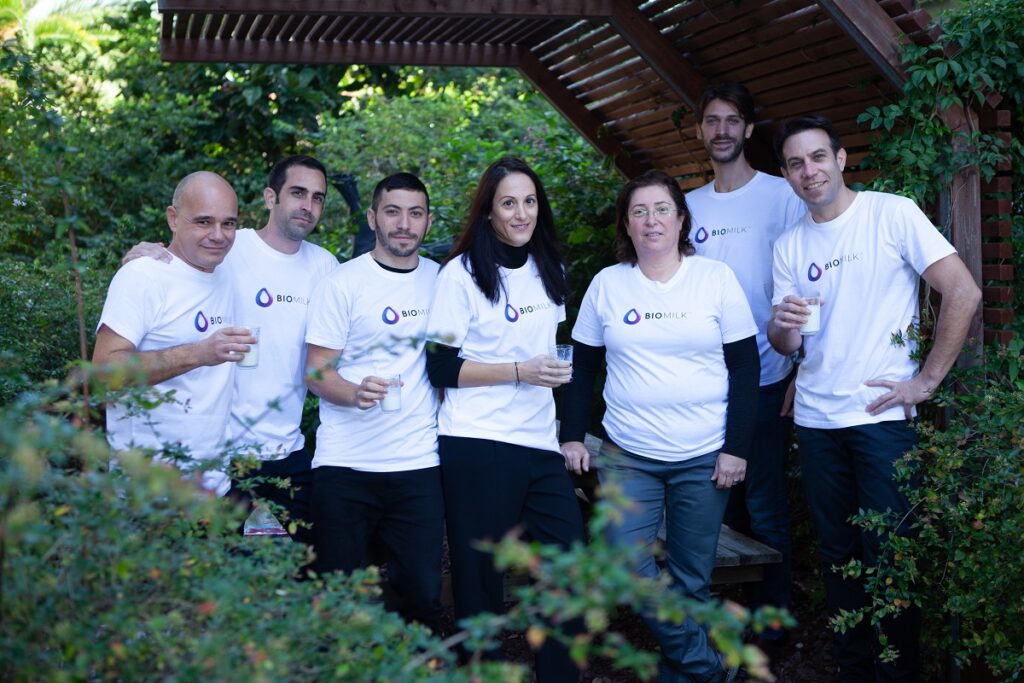
The company is now developing a process that will allow the production of cultured human breast milk.
Pika Diapers
Tel Aviv-based Pika is developing a diaper machine to make it easier for parents to forgo disposable diapers and use cloth ones instead. Founded in 2019, Pika says it is looking to make the planet “a better place for our children” by “developing products with the goal to end the use of plastic.”
Disposable diapers are convenient, but are major pollutants – in the US, some 4.1 million tons of disposable diapers were generated in 2018 alone, according to the EPA, over 3.3 million tons of which ended up in landfills.
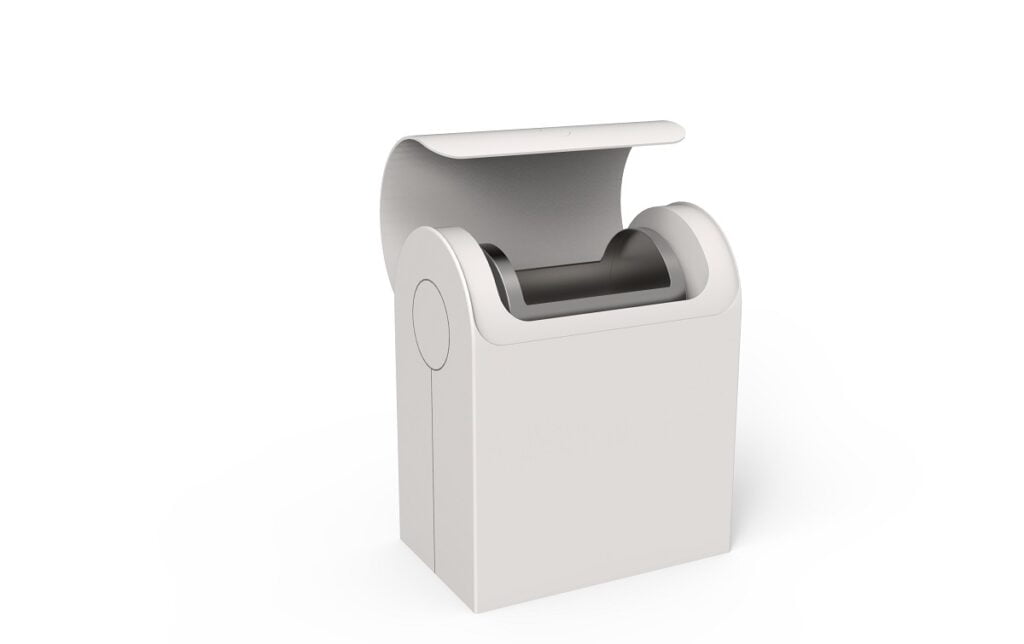
“When I became a father it was a big surprise the amount of waste I contributed to our world with disposable diapers,” Alon Cohen, Pika co-founder and CEO, tells NoCamels via email. “We started to use cloth diapers and my wife told me that it is very nice but she won’t clean all this poo.”
From that moment, he says, the hunt was on for a “full diaper solution that will be easy, affordable, and better for our environment.”
Pika’s compact machine, at 40 x 40 x 72 cm, can clean and dry up to 10 soiled cloth diapers at a time in about 1-2 hours with unique cleaning tablets, the startup says. The machine also has built-in sensors that can provide nutritional analysis to users.
The company’s first model launched in Israel recently.
Pika was also one of the top 10 finalists in the Startup World Cup Israel event, held last month.
Viva Sarah Press is a journalist and speaker. She writes and talks about the creativity and innovation taking place in Israel and beyond. www.vivaspress.com
Related posts

Editors’ & Readers’ Choice: 10 Favorite NoCamels Articles

Forward Facing: What Does The Future Hold For Israeli High-Tech?

Impact Innovation: Israeli Startups That Could Shape Our Future




Facebook comments